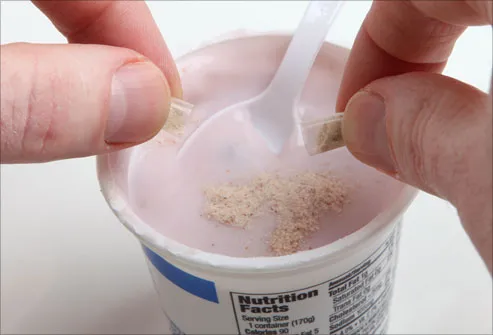 |
| Probiotics can be found in fermented food products such as yogurt or as supplement tablets. Photo Credit: WebMD.com |
Concerns for healthy living and the desire for ways to reach
(or keep) one’s ideal weight are widespread. Recently, advertisements
supporting the use of probiotic products for weight reduction are reaching new
heights of popularity. People are wondering if they have perhaps been self-sabotaging
their diets the majority of their lives by excluding rich sources of friendly
bacteria from their daily food routines. The question for scientists studying
the effects of this trendy new diet staple: “Will probiotic products actually help me lose
weight?”
A review
article by Parks & Bae (2015) attempted to answer this question by compiling
recent research and comparing their results. They described probiotics, the
live microorganisms that can have beneficial health benefits when consumed as a
part of the diet, as being capable of actually changing the bacterial
composition of our digestive tracts. Certain factors such as weight change,
dietary intake, and surgeries affecting the GI tract can affect the gut
bacteria; another factor, dietary supplementation of probiotics, may affect the
gut bacteria in ways that ultimately lead to weight loss. What is even more
intriguing is that this weight loss may be independent of the amount of food
actually consumed.
When 9
studies were reviewed (4 of those studies included in the meta-analysis) for
the effect of probiotic use on body weight, research showed that there were
overall no differences in the weight of study participants who were users of
probiotics versus non-users. Though the researchers stated that the short
duration (ranging from 3 to 8 weeks) of studies reviewed may have led to the resulting
lack of effect probiotic usage on weight loss and BMI, ultimately a lack of
restraint when making food choices in participants of both the control group
and the supplement-treated group may have led to a lack of weight loss or
weight gain, rendering the probiotic’s effect insignificant.
For now, research is still seeking
to identify the specific mechanisms by which probiotics and friendly bacteria
influence the gut as a whole, contributing to weight control. Factors such as composition
of food usually consumed, exercise level, and stress level may affect the gut
bacteria and the counter the beneficial effects of probiotics. This review
concluded that probiotics, whether in the form of food products or capsules,
are not effective when used as a weight loss aid; however, research is still
being done in this trending interest area, and benefits of probiotics may
extend beyond the bathroom scale. These incomprehensibly small gut-protectors
may prevent inflammation that can contribute to several related dysfunctional
states, such as type 2 diabetes and non-alcoholic fatty liver disease, and for
that reason, they shouldn’t be completely discounted from a healthy diet.
Full Research Review HERE: Probiotics For Weight Loss: A Systematic Reveiw and Meta-Analysis
Comments
Post a Comment